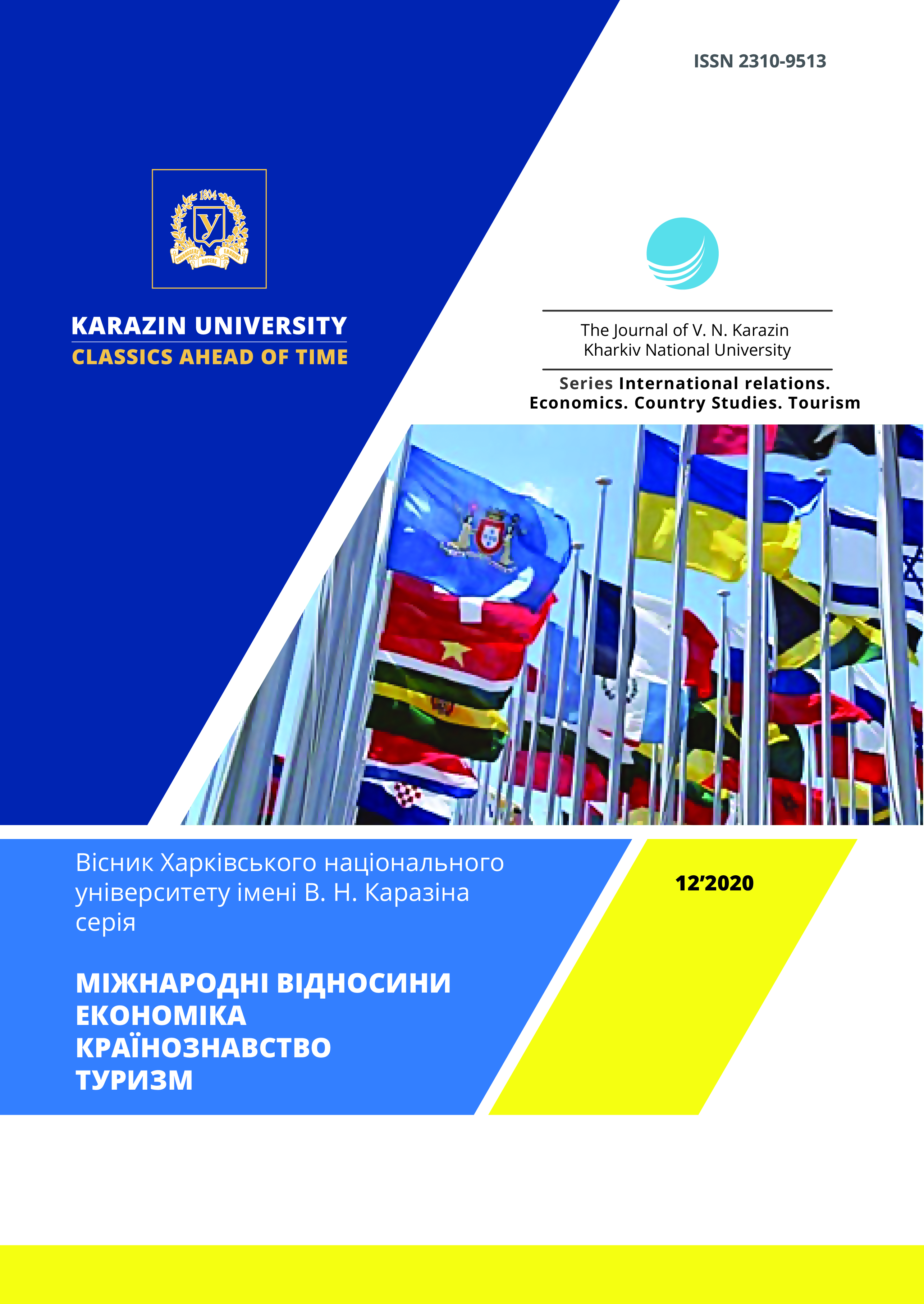Теоретико-методологічні підходи до періодизації техніко-технологічного розвитку
Анотація
Стаття присвячена проблемі техніко-технологічного розвитку, який у сучасному глобалізованому світі підпорядковується законам циклічності. Реалії сьогодення є свідченням того, що у кожній країні світу співіснують і взаємодіють між собою елементи різних за рівнем свого розвитку технологічних структур, що потребує виваженої політики щодо управління їхнім розвитком. Тому метою даного дослідження є виокремлення основних теоретико-методологічних підходів до періодизації техніко-технологічного розвитку світової економіки та формування узагальнених критеріїв щодо структурування періодів її циклічної динаміки. У ході дослідження були вирішені завдання, які полягали у відборі тих теоретико-методологічних підходів, які найбільш повно висвітлюють причинно-наслідкові зв’язки між змінами техніки й технології, з одного боку, і розвитком, – з іншого; виокремленні у кожному підході критеріїв періодизації та визначенні можливостей цих підходів описувати сучасну ситуацію. Методологічним підґрунтям виступили такі загальнонаукові методи дослідження як діалектика, аналіз і синтез, єдність історичного й логічного, а також методи узагальнень, порівнянь і класифікацій. Результатом їх застосування стало з’ясування суті та встановлення специфіки концептуальних підходів М. Кондратьєва, К. Перес та С. Глазьєва, які на сьогоднішній день вважаються провідними у поясненні техніко-технологічного розвитку. На основі порівняння цих теоретико-методологічних підходів сформовано узагальнене уявлення про критерії періодизації останнього. Загальним висновком дослідження є формування наукових уявлень про етапи, через які проходить суспільство у своєму техніко-технологічному розвитку. Це дозволяє правильно оцінити сучасне положення певної економічної системи та обрати більш дієві інструменти економічної політики задля спрямування її розвитку шляхом прогресу.
Завантаження
Посилання
Menshikov, S. M. & Klimenko, L. A. (1989). Dlinnyye volny v ekonomike. Moskva: „Mezhdunarodnyye otnosheniya”.
Yakovets, Yu. V. (2004). Epokhalnyye innovatsii ХХІ veka. Moskva: ZAO „Izdatelstvo «Ekonomika”, 2004. – 444 s
Pylypenko, H. M. & Fedorova N. Ye. (2020). Nauka yak faktor sotsialno-ekonomichnoho rozvytku suspilstva. Dnipro : NTU „DP”.
Podlesnaya, V. G. (2017). Logiko-istoricheskiye osnovaniya formirovaniya sotsialno-ekonomicheskikh tsiklov. Kiiv: NAN Ukrainy, GU „Institut ekonomiki i prognozirovaniya NAN Ukrainy”.
Fedulova, L. I. (2006). Tekhnolohichnyy rozvytok ekonomiky Ukrayiny. – Kiiv: In-t ekonomiky ta prohnozuvannya.
Pylypenko, Yu.I. (2010). Tekhnolohichna struktura natsionalnoyi ekonomiky: teoriya, praktyka ta rehulyuvannya. – Dnipropetrovsk : Natsionalnyy hirnychyy universytet.
Sukharev, O. S. (2008). Ekonomika tekhnologicheskogo razvitiya. Moskva: Finansy i statistika.
Kondratyev, N. D. (1989). Problemy ekonomicheskoy dinamiki. Moskva: Ekonomika.
Kulisher, I. M. (2004). Istoriya ekonomicheskogo byta Zapadnoy Yevropy. Chelyabinsk: Sotsium.
Рeres, K. (2013). Tekhnologicheskiye revolyutsii i finansovyy kapital. Dinamika puzyrey i periodov protsvetaniya. Moskva: Delo.
Perez-Perez, K. (1985). Toward a Comprehensive Theory of Long Waves. Long Waves, Depression, and Innovation: Implication for National and Regional Economic Policy: Collaborative Paper. IIASA, 103-117.
Glazyev, S. Yu. (1993). Teoriya dolgosrochnogo tekhniko-ekonomicheskogo razvitiya. Moskva: VlaDar.
Glazyev, S. Yu. & Kharitonov, V. V. (2009). Nanotekhnologii kak klyuchevoy faktor novogo tekhnologicheskogo uklada v ekonomike. Moskva: «Trovant».
Автори, які публікуються у цьому журналі, погоджуються з наступними умовами:
- Автори залишають за собою право на авторство своєї роботи та передають журналу право першої публікації цієї роботи на умовах ліцензії Creative Commons Attribution License 4.0 International (CC BY 4.0), котра дозволяє іншим особам вільно розповсюджувати опубліковану роботу з обов'язковим посиланням на авторів оригінальної роботи та першу публікацію роботи у цьому журналі.
- Автори мають право укладати самостійні додаткові угоди щодо неексклюзивного розповсюдження роботи у тому вигляді, в якому вона була опублікована цим журналом (наприклад, розміщувати роботу в електронному сховищі установи або публікувати у складі монографії), за умови збереження посилання на першу публікацію роботи у цьому журналі.
- Політика журналу дозволяє і заохочує розміщення авторами в мережі Інтернет (наприклад, у сховищах установ або на особистих веб-сайтах) рукопису роботи, як до подання цього рукопису до редакції, так і під час його редакційного опрацювання, оскільки це сприяє виникненню продуктивної наукової дискусії та позитивно позначається на оперативності та динаміці цитування опублікованої роботи (див. The Effect of Open Access).




